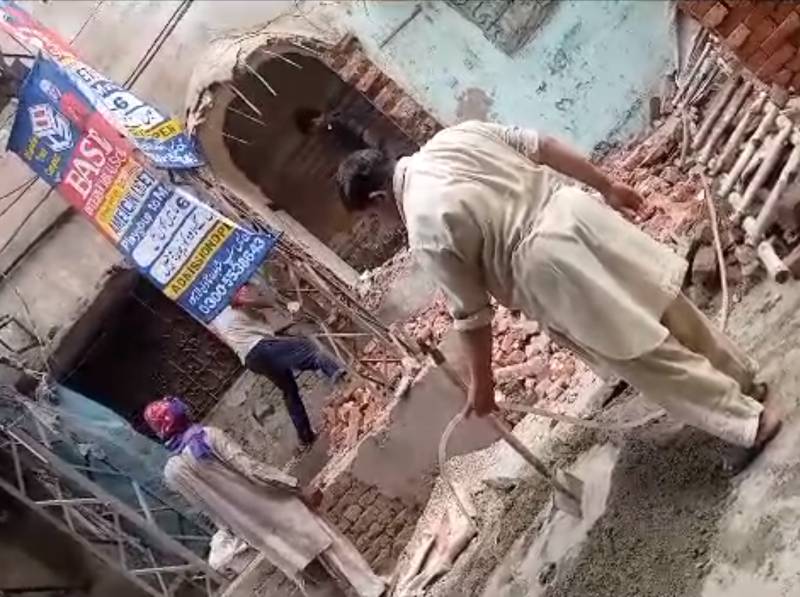
Police in Shahdara Town of Lahore on Friday oversaw the demolition of an arch (Mehrab) of an Ahmadi worship place, the community said.
In a message and accompanying videos, the Ahmadiyya Community said that around 15-20 police arrived at the worship place and demanded that the community members voluntarily demolish the arch.
The community members refused and pointed to the recent decision of the Lahore High Court, which granted protection of any structures constructed before the 1984 law came into force, and that the building and structure in question were constructed before 1947.
Despite being communicated the court's order, the police set up a cordon as arch was forcibly demolished.
Videos showed that one to two people demolished the arch while others prepared cement.
Late last month, in a landmark verdict, a single-member bench of the Lahore High Court had ruled that physical attributes resembling mosques constructed on places of worship of the Ahmadiyya Community that are older than the blasphemy law cannot be forcibly altered or otherwise prosecuted under that law nor can they be treated as a "continuing offence".
The court issued the verdict as it heard a petition moved by the caretakers of a century-old Ahmadi place of worship in Wazirabad seeking pre-arrest bail. The petitioners sought bail after being booked by the Wazirabad City police in November 2022 on the complaint of citizen Irfan Ilyas.
According to the verdict, an FIR was filed under the blasphemy law, with sections 298-B and 298-C applied over a place of worship built by the Ahmadiyya community in Moti Bazar, Wazirabad, with a minaret. Since the minaret is considered to be an architectural feature and religious symbol important to Islam, it was contended in the FIR that the builders of the property had violated the relevant sections of the blasphemy law and had insulted the "religious feelings of the Muslim population of the locality and a perpetual source of pain and anguish for them".

